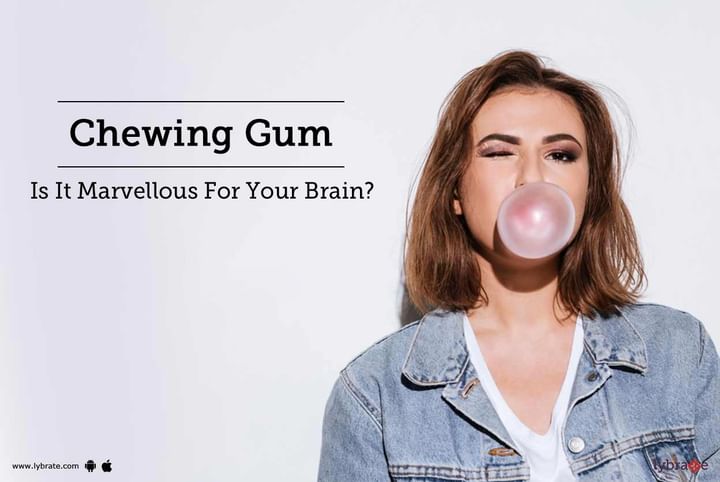Chewing Gum - Is It Marvellous For Your Brain?
Though we may think of chewing gum as something that is a recent thing for mankind, surprisingly it is not so. Chewing gum or bark or chicle (the milky latex of the sapodilla tree, formerly chewed by the Aztecs and now used to make chewing gum) has been around for centuries now. Even the ancient civilizations like Aztec talk about chewing gums. With a lot of curiosity, studies were conducted to see what other effects do chewing gums have.
As early as in 1939, Leta Hollingsworth did some detailed studies and came up with linkages between chewing gum and cognitive functions.
Over the subsequent years, though more detailed understanding of the chewing process and the neural pathway is established, more correlation has been established. It has been shown to have benefits on memory alertness, anxiety, improved learning and hunger management.
What sort of gum are you chewing - that also decides the effect it has. The texture, flavour and density are some of the parameters that need to be considered. The most common explanation is that chewing gum improves blood flow to the brain and therefore has these beneficial effects.
Chewing a gum induces what is known as "mastication-induced arousal." Mastication or chewing in layman terms, of the gum induces production of certain chemicals in the brain and also gives a form of physical exercise that promotes blood flow and thereby improves performance. What is also interesting is that studies showed improved performance if the gum is chewed before the test, but had no significant result if chewed during the test.
Chewing gum is also shown to reduce cortisol levels, and that explains why anxiety is better managed by people who constantly chew gum. In addition, for people with depression too, this simple, easily available gum may be the best method of treatment. It has been shown to stimulate the ventral part of the prefrontal cortex, which is responsible for causing depression.
In the workplace, it is not uncommon to see chew gums in the midst of meetings to improve their focus. Studies have actually shown a relationship between chewing gum and improved focus, productivity, efficiency and improved professionalism. When a survey was conducted at the end of the day, gum chewers reported higher levels of happiness being at the job with reduced fatigue and stress.
For the next level of confirmation, studies have been done where EEG and MRI scans have been done to establish the relationship between chewing gum and improved brain function. This needs some more corroboration, which will happen in the coming years, but the benefits of chewing gum are undoubted.



+1.svg)
